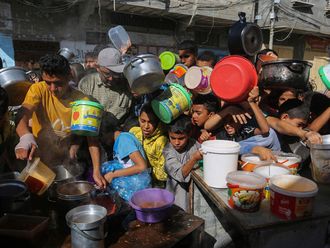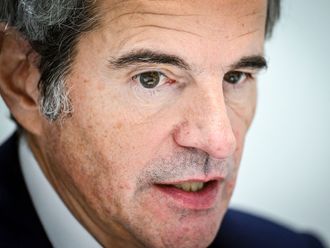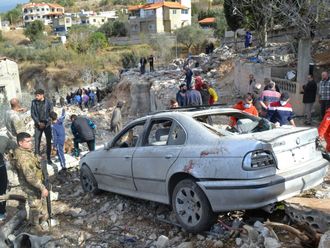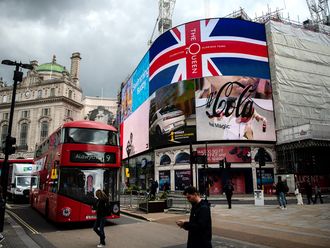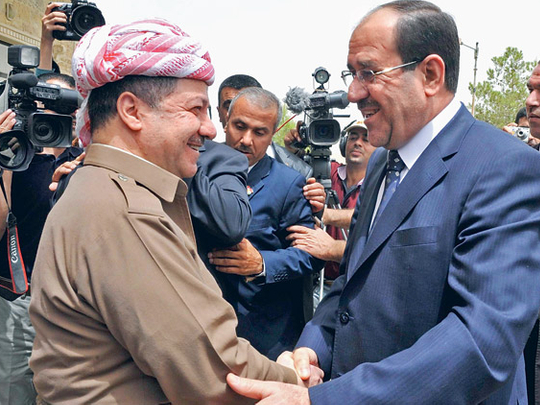
Sulaimaniyah, Iraq (AP) Kurdish lawmakers began on Saturday to plot their course as Iraq's kingmakers with enough seats to secure a second term for Prime Minister Nouri Al Maliki and press key demands, including a greater say over the oil riches in the country's north.
The Kurds, who control a semiautonomous northern enclave, emerged as the pivotal votes after Al Maliki's Shiite-led coalition received a major boost on Friday from a powerful Shiite cleric, Moqtada Al Sadr, who once opposed him. The support pushed Al Maliki close to a majority grip in the 325-seat parliament, but he needs help from other factions to break a nearly seven-month impasse.
A Sunni-backed coalition led by a former prime minister, Eyad Allawi, narrowly won the March elections, yet without enough clout to control parliament and oust Al Maliki, leaving the country in political limbo.
Eventual Kurdish support for Al Maliki is anticipated. But first the Kurds are expected to lobby for their long list of issues, topped by a call for a referendum to decide control of the oil-rich Kirkuk region that is now under Baghdad's sway.
A senior Kurdish official said lawmakers from across the Kurds' three northern provinces gathered on Saturday for a preliminary strategy session with a larger meeting planned later. The official spoke on condition of anonymity because he was not allowed to brief media. Latif Mustafa Ameen, a Kurdish lawmaker, said the Kurds waited in the wings as Al Maliki and Allawi battled after the election. But now the Kurds "see themselves as part of the solution" to settle the political bind by opening talks with Al Maliki's bloc, he said.
The chain of events in the past days has left Al Maliki on the verge on holding onto power after the humbling election loss.
Will of the voters
Even with Allawi's hopes fading, his party remained defiant and said they would not join in any coalition with Al Maliki. In a statement on the party website, spokesman Haider Al Mulla said a Shiite-dominated government led by Al Maliki would violate the will of the voters who seek "a genuine partnership" of Iraq's groups.
Later, Al Maliki cast himself as the apparent victor and tried to reach out to Allawi's bloc.
"Boycotting does not serve anyone," he said in an interview on state-run Iraqiya television. "I ask them to return to the bargaining table."
Yet Al Maliki will be under pressure for big concessions in exchange for the support that has put close to his goal of staying in office. And it comes from two very different directions — the pro-Western Kurds and the staunchly anti-American Al Sadr, who once led one of the most formidable Shiite militias in Iraq.
A leading member of Al Sadr's movement said their demands include as many as six of the 34 Cabinet-level ministry posts, possibly the trade ministry and one post linked to security operations. Both outcomes would alarm Washington by giving Al Sadr's allies a role over vital foreign investment policies and efforts to build up Iraq's police and military as US forces depart.
Close ties
Al Sadr has been in self-exile in Iran since 2007 and there are Western concerns about how much influence Tehran now carries over his decisions.
The Kurds, meanwhile, have been closely tied to the West. After the 1991 war to drive Iraq from Kuwait, American warplanes protected the Kurdish region — which allowed the Kurds to develop their economy and policies virtually independently from Saddam Hussain's control. Now, the Kurdish region is experiencing an economic boom that has raised living standards well above much of the rest of Iraq.
The Kurds also are trying to exert their influence beyond their semiautonomous zone.
They have demanded Iraq follow through with a constitutionally mandated referendum to decide the fate of Kirkuk, which is contested between Kurds, Sunni Arabs and a group with ethnic ties to Turkey.


